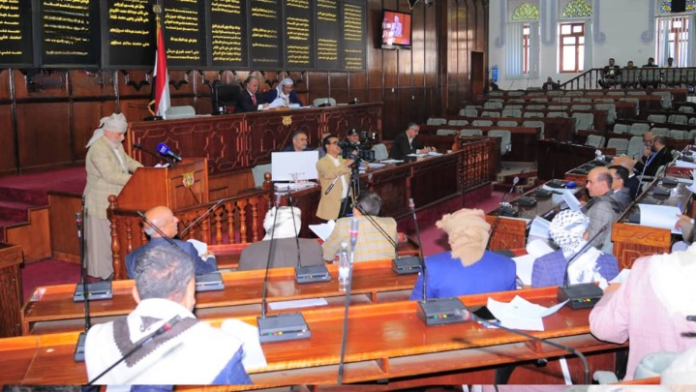The Yemeni Parliament held its Today’s session to discuss a draft law for the year 1446 AH concerning investment.
The session focused on discussing a draft investment law for the year 1446 AH, based on a report from the joint committee made up of members from the committees on trade and industry, financial affairs, development, and oil, who were assigned to review the draft law.
The draft law is in line with the goals of the revolutionary and political leadership, as outlined in the Government of Change and Construction’s program and the recommendations of the Council upon its approval.
Its main aim is to enhance the investment environment by offering incentives, advantages, and guarantees for establishing investment projects that focus on the economy and utilize local resources. This approach seeks to reduce the import bill and create job opportunities.
The report highlighted that the draft law fits within the framework of the government’s strategy to improve the economic situation, which has been severely impacted by aggression and an economic blockade.
The law aims to create a favorable investment climate, attract both national and foreign capital, and direct it towards investment in national priority sectors such as the economy, production, services, and infrastructure. It also aims to diversify the economy, provide support for small and micro-enterprises, promote public shareholding companies (IPOs), and localize industries that depend on domestic production inputs.
The report further pointed out that the parliamentary committee responsible for studying the draft law was keen to include provisions that offer advantages and incentives to investors who have endured the hardships of aggression over the years. These provisions acknowledge the difficult circumstances Yemen has faced.
The report emphasized that the observations submitted by various parties were carefully considered to align with the aspirations of both the government and the private sector. The goal is to strengthen partnerships that will advance economic sectors and ensure that all investors benefit from the incentives outlined in the draft law. This is expected to make a significant leap in the field of investment in Yemen.
The session was attended by representatives from the government, including the Minister of Economy, Industry, and Investment, Eng. Moeen Al-Mahagri; the Chairman of the General Investment Authority, Yasser Al-Mansour; the Authority’s Undersecretary, Mohammed Al-Farzai; and several experts from relevant authorities.
The draft law consists of 99 articles spread across six chapters. The first chapter covers naming, definitions, objectives, and validity. The second chapter addresses guarantees and incentives.
The third chapter deals with the single window, the registration procedures for investment projects, granting incentives and benefits, and investor obligations. Chapter IV focuses on the encouragement and protection of local production and export development. Chapter V outlines the purposes, functions, and competencies of the General Investment Authority, along with its resources and financial system. Chapter VI addresses the settlement of investment disputes and final provisions.


















